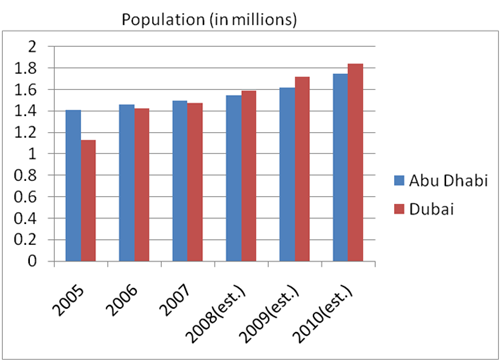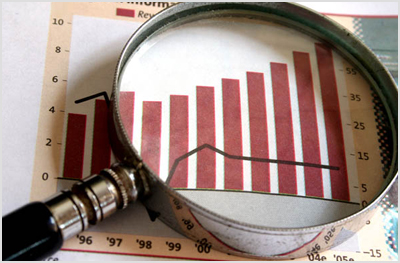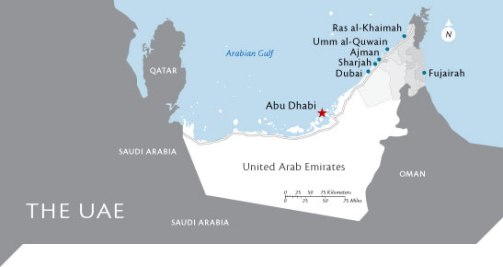
Labor Rights in the UAE
For the UAE, respect for labor rights is a moral, cultural and economic imperative. As a member of the International Labor Organization, the Arab Labor Organization and other labor-focused multi-lateral organizations, the UAE seeks to work transparently and objectively with regard to its international labor obligations.
In 2007 approximately three million foreign workers were employed by 260,000 organizations, representing more than 200 countries. More than 90 percent of the private-sector labor force consists of expatriate workers, creating unique challenges for the UAE.
The UAE Ministry of Labor recently released its first annual report, “The Protection of the Rights of Workers in the United Arab Emirates,” which is both a progress assessment and a blueprint for ongoing action. It acknowledges that more needs to be done to expand capacity to enforce labor laws and fully protect the rights of workers in the country—and also notes important accomplishments to date.
The UAE presented this report, along with other reports on women and on human trafficking, to the United Nations at its Universal Periodic Review in December 2008. The UPR reviews every country’s performance on comprehensively protecting, promoting and fulfilling the principles of the Universal Declaration of Human Rights. The UAE welcomes the process to share progress and obtain feedback from other states.
Over the last two years, federal and Emirate governments have instituted sweeping reforms aimed at improving working conditions and worker rights, reflecting UAE’s commitment to treating all guest workers with dignity and respect.
Federal Actions
The UAE Cabinet has passed a number of reforms to combat abusive labor practices:
- Workers in all labor sectors have rights to transfer employer sponsorship
- The UAE has created bank guarantees that earmark funds for worker compensation
- It is illegal for employers to withhold workers’ passports
- New licenses are being denied for foreign labor brokers and recruiters who cannot demonstrate full compliance with UAE laws
- In April 2006, the UAE created mandatory employment contracts to protect the rights of domestic workers in relation to salary, accommodation, healthcare and working hours
To improve living conditions, the UAE has plans for new, modern residential cities for workers throughout the UAE. In mid-2006, the first Workers Residential City was inaugurated in the Abu Dhabi Industrial Zone. The project, which is the first of three expected, provides accommodation, on-site health care, shopping and leisure facilities, waste disposal and 24-hour visa services.
Another focus of the government is the health and safety of workers, as evidenced by the prohibition of outdoor work between 12:30 p.m. and 3:00 p.m. during the hot summer months. This policy, first launched in 2005 and known as the “mid-day break” rule, is aimed at protecting workers in the sizeable contracting and construction sectors from heat exhaustion and heat stroke. Sanctions for non-compliance by employers include considerable financial penalties, applied on a per-worker basis.
Emirate Actions
Emirate-level governments are also taking steps to protect the rights of foreign workers. In November 2006, HH Sheikh Mohamed Bin Rashid Al Maktoum, UAE Vice President and Prime Minister and Ruler of Dubai, issued a series of directives to improve the lives of guest workers. These directives helped shape the federal approach and included mandates for adequate housing, safe transportation for workers to labor sites, an expanded force of inspectors, new federal labor courts, and better treatment for workers returning to their native countries, as well as those who have been cheated of their wages.
The Abu Dhabi government, in its
Policy Agenda 2007-2008, affirmed that senior managers within state-run institutions would be held accountable if projects under their supervision failed to comply with the Emirate’s commitment to fully enforce UAE labor laws. The same policy document called on government managers to make labor law compliance a standard clause in all government tender contracts.
Abu Dhabi also introduced a comprehensive and compulsory insurance policy for all workers, including domestic, to be funded by sponsors. The compulsory health insurance plan for private sector employees, as implemented in Abu Dhabi, came into effect across the country in 2008.
To improve emergency care and health services, the Emirate is also building three new hospitals especially for workers. Locating facilities near housing and work sites should dramatically improve response and recovery rates.
In March 2007, the Emirate of Sharjah announced a commitment to ensure better and healthier housing conditions for workers. Companies violating the standards will face penalties of up to 50,000 dirhams ($13,600), and fines will be doubled for repeat violators.
International Leadership
The UAE has negotiated bilateral labor agreements with the governments of nations supplying large numbers of laborers to the UAE economy. Labor-source nations received approximately $16 billion in annual remittances from the UAE in 2006.
The major focus of these agreements is to eliminate middlemen, i.e., labor recruiting agencies, in the recruitment of workers. Many labor recruiting agencies exploit workers by extorting large upfront payments from them for visas. This practice is illegal in the UAE, where labor law requires the cost of visas to be borne by the employer, but is difficult to combat because recruitment agencies operate outside of the country. It is precisely in these areas where unilateral regulation and enforcement is ineffective that the UAE hopes bilateral efforts will prove successful. Agreements have been made with Nepal, India, Pakistan, Bangladesh, Sri Lanka, China, Thailand and the Philippines.
In January 2008, the UAE hosted two important international meetings, as part of its commitment to find solutions to labor market challenges.
The first was a ministerial consultation with Asian labor-exporting countries to solidify reforms and minimize exploitative recruitment practices. The event was part of the Colombo Process, a regional consultation on overseas employment, and the first meeting to be hosted by a country of destination. The dialogue included the Colombo Process countries and other GCC states, as well as an observer from Human Rights Watch. One outcome of the “Abu Dhabi Labor Declaration” is a plan for the UAE to set up offices in South Asian countries to inform workers about fair conditions and regulations in the Emirates.
Immediately following the Abu Dhabi Dialogue, the UAE hosted the “Gulf Forum on Temporary Contractual Labor” to continue the discussions. The Forum agreed to enhance partnerships between countries of origin and destination.
As a follow-up action from the dialogue, the UAE, the Philippines and India launched a pilot project to improve the quality of life for migrant workers. The multi-faceted initiative, announced in October 2008, supports workers throughout their experience: practical measures to improve recruitment and “pre-deployment” before arrival; improved living and working conditions in the UAE; and steps to facilitate the return and reintegration of workers to their home country. The pilot project will focus on workers in the construction, hospitality and health care sectors, with a special emphasis on addressing the vulnerabilities of women in all phases of the employment cycle. In addition to the countries involved, the project includes the ILO, the International Organization for Migration and the Arab Labor Organization.
The goal of the two-year project is to create a regional framework that can be applied to other countries of origin and their destination. Countries participating in the Abu Dhabi Dialogue will benefit as developments, findings and lessons learned are shared.
Enforcement
Enforcement is critical in all areas of protecting the rights of workers. Ensuring the fair and on-time payment of workers is a particular priority of labor policy enforcement.
- The UAE Ministry of Labor requires firms to provide audited statements demonstrating that wages have been paid.
- In 2007, the UAE government forced businesses to pay 52 million dirhams ($14.2 million) in unpaid wages, after legal action.
- In 2007 the Ministry of Labor suspended permits of 1,300 companies for late payment of workers’ wages, while 545 institutions found guilty of nonpayment of wages had activities frozen or suspended.
- In November 2007, the Ministry of Labor collaborated with some construction companies to provide a 20 percent pay raise for workers, to accommodate increasing costs.
- The number of inspectors dedicated to labor has grown to 700.
- A new, 24-hour, toll-free hotline allows workers to file complaints, check status of applications and ask questions.
In addition, the Labor Ministry is making it easier for workers to transfer to other employers. In 2007, 35 percent more workers than 2006 transferred employment. And a group of 95,000 illegal workers took advantage of an amnesty program to find employment and legalize their stay in the country.
The Labor Ministry is taking steps to speed settlement of labor disputes, processing 22,000 cases involving 31,500 workers in 2007. It has established offices in the Dubai and Abu Dhabi courts to act as a liaison point and facilitate dispute resolution.
There has been a record increase in court cases against employers who withhold salaries and refuse to issue documents that enable people to change jobs. In the first half of 2008, the number of cases filed with the Dubai Courts Labor Cases Section more than doubled compared with the same period in 2007.
Improving working conditions is another area for action:
- In 2007, the Labor Ministry conducted 122,000 inspection visits to worksites. These resulted in penalties for 8,588 violations, relating to working conditions and workers’ rights.
- The Labor Ministry will not process group labor permits (for 25 or more workers) unless there is a tangible commitment (plans and resources) to provide adequate housing. In 2007, 12 companies did not meet this requirement and their applications were denied.
- In 2007, 60 of 100 construction companies in Dubai that had been ordered to improve accommodations took action to comply with the order. Thirty new notices were served.

















































